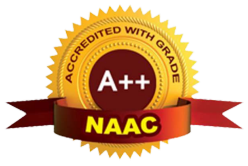National Education Day 2022
National Education Day Celebration on the birth anniversary of Maulana Abul Kalam Azad on 11th November, 2022: A Report
The School of Education, IGNOU celebrated the National Education Day on 11th November,2022, to commemorate the birth anniversary of Maulana Abul Kalam Azad. Three speakers with expertise and experience in the field of early childhood education were invited to this event. They were Prof.Venita Kaul, , Ms.Deepa Sankar and Dr. Manimalika Day. The speakers deliberated on the significance of early childhood education, the recommendation of the National Education Policy, 2020 to universalise it, and the measures suggested by the National Curriculum Framework for the foundational stage for the implementation of the recommendation. The summary of the deliberations during the three sessions is as follows:
Session 1- Resource person: Prof. Venita Kaul (Professor Emeritus [Retd.]; Served NCERT; & World Bank as Senior Education Specialist)
Session Moderator- Prof.Vandana Singh
Rapporteur- Dr. Ajith Kumar
Theme: Pedagogic and curricular inputs for quality foundational stage education
Prof. Vinita Kaul focussed on the theme ‘pedagogic and curricular inputs for quality foundational stage education’. She initiated the deliberation by mentioning the National Educational Policy’s (2020) recommendations on the Foundational stage and the new curricular framework. She said that the NEP 2020 recommends curricular integration of pre-primary and primary stages, which would ensure continuity and consistency in pre-primary and primary stages of education. She also mentioned about the models proposed for the foundational stage, involving- anganwadis, anganwadi co-located in primary schools, pre-schools ( or nursery schools ) run by private agencies and pre-school collocated in primary schools owned by public or private agencies. She shared the concern expressed about children of upper primary school not having adequate knowledge and skills. She also mentioned about her own longitudinal study conducted on primary school children for five years. The study found that those children who have pre-schooling performed better in schools than those who have not attended pre-school education. The study also found that play based pedagogy was more suitable for pre-school and grades 1 and 2. She also mentioned that the NEP has given emphasis on the foundational stage of education and for the first time, evidence-based recommendations have found place in the NCF based on the NEP. She also stressed upon the play-based pedagogy because play is something which is very natural and a medium through which children learn. Play-based activities therefore must be incorporated in a smooth and supportive environment and teachers should play the role of facilitators.
She said that the primary objective of the foundational stage is to make children develop a strong foundation for life and schooling. At the same time the foundational stage should also focus on personality development by enhancing children’s knowledge and skills in five developmental domains like language literacy, maths literacy, socio-emotional literacy, creativity, physical and motor development. The curriculum should also follow a continual approach starting from pre-school to primary and upper primary levels. She informed that the new curriculum framework for the foundational stage recommends play based pedagogy, and the strategies for implementing the same. It also provides teachers with directions for practicing play-based pedagogy and other curricular activities. At the end, she mentioned some of the issues like implementing the recommendation pertaining to medium of instruction.
Session 2; Resource person: Ms. Deepa Sankar (Chief of Education, UNICEF Dhaka; formerly Senior Economist, The World Bank)
Moderator- Ms. Poonam Bhushan
Rapporteur- Dr. Elizabeth Kuruvilla
Theme : Practices pertaining to quality early childhood education for the foundational stage
Ms. Deepa Sankar, Chief of Education, UNICEF Dhaka was the resource person for the second session. She stated that her view of pre-school education emerged from her experience of the scenario outside the classroom. She also stated that the foundational learning had come to the centre stage after the Transforming Education Summit, 2020, and pre-school education occupying an important component of foundational learning. She looked at transforming education from four perspectives , which are i) learning environment, ii) transforming teachers, iii) Digital learning and iv) Investing more, and investing efficiently. She also highlighted the challenges in implementing the National Curriculum Framework for Foundational learning.
Ms. Deepa also said that in most countries children have gone through one year of pre-school education as part of Sustainable Development Target 2.2. But in India, many children lack preschool education, and hence, school readiness. She concluded by stating that India needs a strong advocacy at the State level for preschool education and the States have to invest more.
Session 3- Resource person: Dr. Monimalika Day ( Director of Center for Early Childhood Education and Development, Dr. B.R. Ambedkar University, New Delhi).
Moderator- Dr Eisha Kannadi
Rapporteur- Dr. Anjuli Suhane
Theme : Capacity building for implementation of ECCE curriculum framework
Dr. Day focussed on the need for capacity building of teachers for implementation of ECCE curriculum framework. She also deliberated on the systemic barriers to accessing and completing teacher education programme for preschool level, and underlined the role of ODL and online learning in the professional development of pre-primary teachers and Anganwadi workers. After that she stated the need of the National and State level accreditation for early childhood teacher education programmes. She also emphasized on the need for collaboration across agencies and convergence among associated ministries for effective implementation of preschool education programmes. Further she discussed the need for inclusive education for young children with disabilities, and the need for preparing teachers for including such children in their classroom.
The Hon. Vice Chancellor, IGNOU delivered the presidential address and thanked the speakers for their rich inputs. The celebration ended with avote of thanks delivered by Prof. Amitav Mishra.



